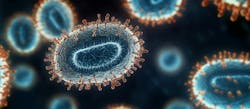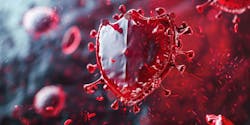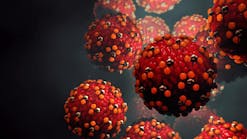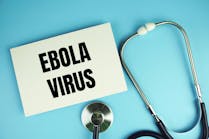Plan to speed development of coronavirus treatments devised by universities
An international team of scientists has created a plan for an accelerated pipeline for developing drug cocktails to battle the COVID-19 pandemic. The pipeline could speed new and better treatments that the newly diagnosed and recently exposed could take at home to prevent serious illness, according to a news release from the University of Virginia.
The “proactive drug development strategy” could also offer a first line of defense against future pandemics, the researchers say. The approach would allow scientists to be ready with an arsenal of drugs that could be quickly moved into clinical trials when a dangerous new infection appears, whether a coronavirus or another pathogen. The goal: Make effective treatments available in weeks, not months or years.
“We need to proactively develop drug cocktails against virus families as a whole — for example, all coronaviruses – to be ready on day one if a new virus or variant emerges. The cocktail should be low-cost, easy to transport and distribute, and easy to self-administer — therefore available to people across the globe,” said researcher Judith M. White, Professor Emeritus at the University of Virginia School of Medicine. “We hope that this concept of ‘smart drug cocktails’ — smart because of the choice of drugs for testing and computer modeling of their effectiveness in humans — will be the basis for a robust, coordinated effort against coronaviruses and other pathogenic viruses, such as Zika and Lassa fever viruses, just to name a few.”
The new strategy comes from White, of UVA’s Departments of Cell Biology and Microbiology, Immunology and Cancer Biology; and colleagues in Seattle, at the University of Washington and the Fred Hutchinson Cancer Research Center; the University of Maryland; and MRI Global, as well as collaborators in Estonia, Finland and Norway. The scientists believe that prioritizing the development of drug cocktails — treatments that combine two or more medicines — would reduce the burden on health care systems and help prevent disease spread by limiting a virus’ ability to adapt to its hosts. This type of combination approach is already the norm for treating viruses such as HIV.
The researchers outline a five-point plan to accelerate the identification and administration of effective drug cocktails:
- Prioritize drugs that people could take at home, either by mouth or inhalation, after exposure or when symptoms first appear.
- Focus on drug combinations, rather than individual drugs, to reduce the chance viruses will become drug resistant.
- Prioritize drugs that are already approved or in advanced clinical trials, to accelerate how quickly their safety and effectiveness can be assured.
- Focus on drugs that can be given to people at doses that will yield anti-viral effects without toxic side effects.
- Use advanced computer models to identify useful drug combinations and speed development.
To demonstrate the potential of computer modeling for this purpose, Joshua T. Schiffer of Fred Hutch developed a model to assess the potential clinical effectiveness of drug pairs for treating COVID-19. Pairing drugs, the researchers say, could make for treatments that are more effective than individual drugs alone. Identifying drugs with this type of “synergy,” they say, could potentially turn two medicines of only modest benefit into a potent treatment.





